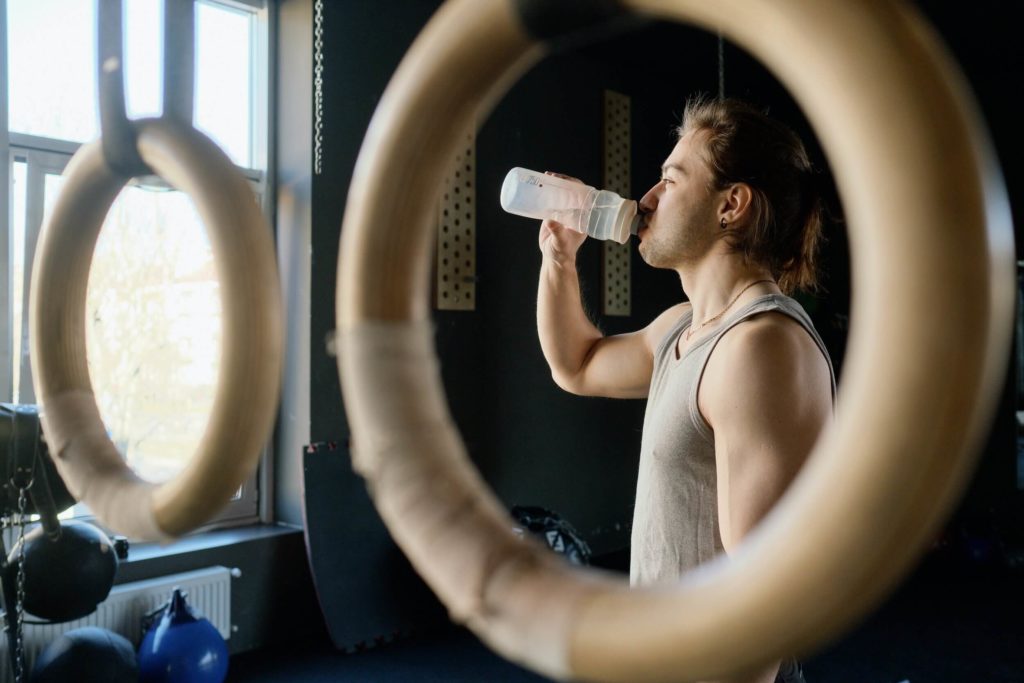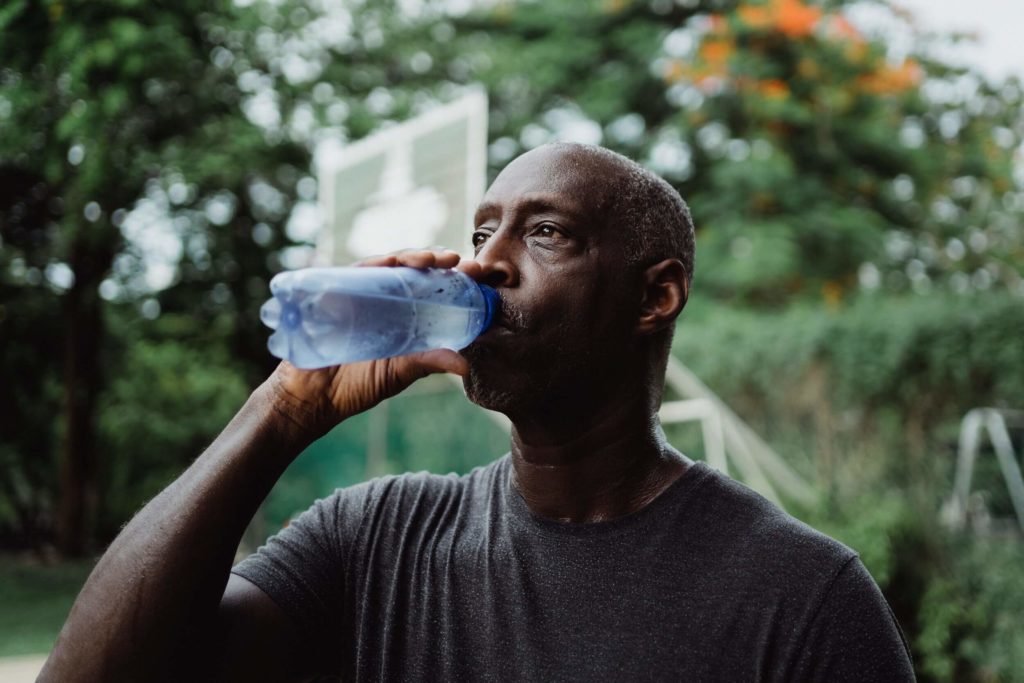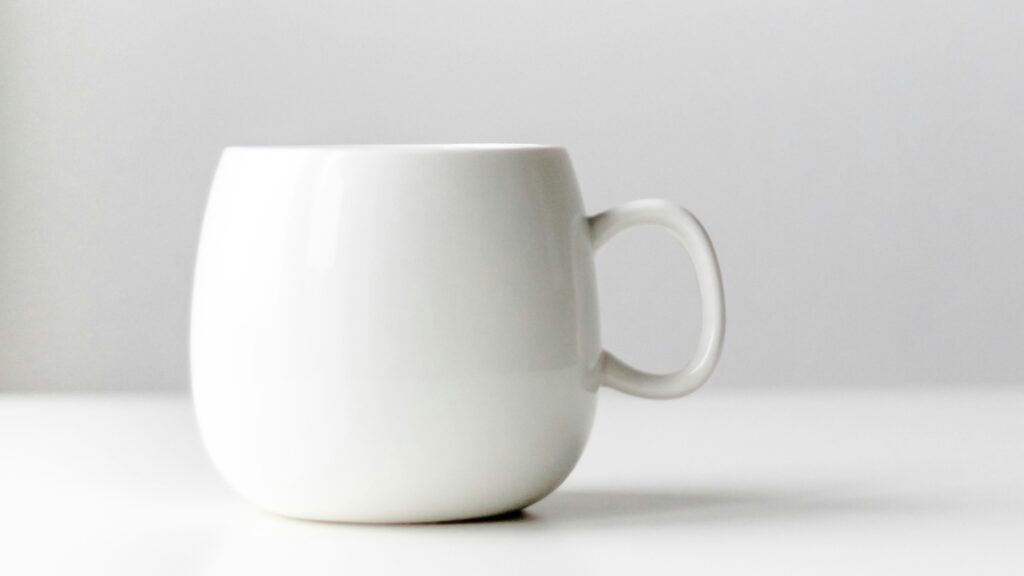
Introduction
From the time that life ventured from the seas to live on land, the key to survival has been the prevention of dehydration. The adaptations for survival are across an array of species, not just in man.
Water comprises 75% body weight in infants to 55% in the elderly and is essential for cellular homeostasis and life. Without water, humans can survive only for days. There are many unanswered questions about the most essential component of our body and our diet.
Water is essential for life.
Effects of Dehydration
Dehydration takes place when your body doesn’t get as much water as it requires. Without enough water, your body isn’t able to function properly. You can have mild, moderate, or severe dehydration, depending on how much water is missing from your body.
You can lose water daily through sweating, breathing, peeing, and pooping, and through tears and saliva. Usually, you replace the lost water by drinking enough fluids and eating foods that contain water. If you lose too much water, your body can get dehydrated.

Physical Performance
The role of water and hydration in physical activity, particularly in athletes, has been well-described through science. During challenging athletic activities, it is not uncommon for athletes to lose 6–10% of body weight through sweat, thus leading to dehydration if water isn’t replenished. Physical performance in athletes has been affected under lower levels of dehydration, as little as 2%. Under relatively mild levels of dehydration, individuals engaging in rigorous physical activity will experience decrements in performance related to reduced endurance, increased fatigue, altered thermoregulatory capability, reduced motivation, and increased perceived effort.
Rehydration can reverse these effects, and also reduce oxidative stress induced by exercise and dehydration. Lack of proper hydration appears to have a big impact on high-intensity and endurance activities such as tennis and long-distance running than on anaerobic activities such as weight lifting or rowing. During exercise, some people may not hydrate enough when they are allowed to drink as per their thirst. Thus, mild to moderate dehydration can therefore persist for some hours after the conclusion of physical activity.
Research in athletes suggests that, mostly at the beginning of the season, they are at particular risk for dehydration because of being unable to acclimatize to weather or suddenly increased activity levels. Several studies show that performance in hot climates is affected to a greater degree than performance in cold climates. Exercise in hot weather with insufficient water replaced is often linked to hyperthermia, decreases in blood pressure, and reduced blood flow to the muscle.
It is recommended that you begin any athletic activity in a well-hydrated state and drink enough fluids not just when you are thirsty but also have a good hydration routine.

Cognitive Performance
Water or the lack of water in your body can influence cognition. Dehydration in mild levels can disrupt your mood and the brain’s functioning. This is observed more so in children and elderly, those who live in hot climates, and those who engage in strenuous exercise. Mild dehydration produces alterations in many important aspects of cognitive function such as concentration, alertness and short-term memory in children (10–12 years), young adults (18–25 years) and in the oldest adults, (50–82 years).
Dehydration can also impair performance on tasks such as short-term memory, perception, arithmetic ability, and motor skills. Hydrating yourself with sufficient water under conditions of mild dehydration can be expected to reverse dehydration-induced cognitive effects.
Internal Functions – Organs
The processes in our bodies work together to keep us healthy and working at 100%. The urinary system achieves that goal by eliminating waste, controlling our electrolyte levels, and regulating our blood’s volume, pH, and pressure. Made up primarily of the kidneys, ureters, and bladder, the urinary system works with the lungs, intestines, and skin to maintain the water level in our body. The kidneys specifically filter waste from blood to create urine that gets expelled from the body. Without proper hydration, these internal organs become strained and can potentially incur severe damage.
Water plays an important role in the urinary system. As your body works on separating nutrients from waste, water opens up your blood vessels to allow blood to travel freely to your kidneys. After the waste is separated, water mixes with the waste to become urine. Without enough water, the urinary system suffers and these organs have a difficult time achieving their tasks. They function less than optimally due to the lack of hydration and can cause these harmful wastes to build up in the body.
While occasional dehydration is a condition many adults will experience throughout their lifetime, frequent dehydration can significantly impact the kidneys. Severe dehydration doesn’t need to be present to cause damage — even mild to moderate dehydration on a consistent or continuous basis is enough to cause damage to the kidneys that can be temporarily painful or permanently debilitating. Kidney stones and urinary tract infections can result from dehydration, as well as other health conditions due to the buildup of waste and acid that’s not removed from the body.

Like the brain, the heart also consists of a lot of water. Together with the circulatory system, your heart is a primary part of your body’s cardiovascular system — which also includes your blood and blood vessels. These parts work with the lungs, veins, arteries, and other vessels to move blood throughout the body. The cardiovascular system similarly relies on water to the other systems throughout your body — without proper hydration, this system is strained and its performance decreases.
The first two components of the cardiovascular system that dehydration effects are your heart rate and blood pressure. When your body is dehydrated, blood vessels cannot stretch enough because of the reduction in blood volume. Your heart rate increases to compensate and attempts to pump more blood. The higher sodium content in a dehydrated bloodstream forces capillaries to close and blood pressure to increase. Thicker blood that is more concentrated is harder to move through the body so the vessels work harder to push the blood along.
Few studies have also reported that dehydration can be a potential factor in the onset of heart disease. They state that dehydration could have the same negative impact on the blood vessels and arteries that smoking a cigarette does. Although severe cardiovascular strain is not healthy for any individual to experience, it is concerning because it could lead to other health problems in those with underlying health issues. People who are dehydrated due to activity and experience cardiovascular strain could potentially experience a sudden cardiac event if undiagnosed.

Skin
The skin contains approximately 30% water, contributing to plumpness, elasticity, and resiliency. Loss of water through sweat is consistent across the surface of the skin. Dryness is usually linked with exposure to dry air, prolonged contact with hot water and scrubbing with soap (both strip essential oils from skin), medical conditions and medications.
While more serious levels of dehydration can be reflected in reduced skin turgor (turgor is the skin’s elasticity, the ability of the skin to change shape and return to normal), with tenting of the skin as a red flag for dehydration, skin turgor in individuals with adequate hydration is not altered. Water intake, in individuals with low water intake, can improve skin thickness and density and can improve skin hydration. However, sufficient skin hydration is not enough to prevent wrinkles or other signs of ageing, which are related to genetics, and sun and damage.

Body Temperature
During exercise in the heat, sweat output often exceeds water resulting in a body water deficit and electrolyte loss. Daily water losses can be substantial and people need to emphasize drinking water during exercise and eating. Reduced hydration increases body heat and reduces one’s ability to tolerate heat strain. Water in every cell of the human body acts as a buffer against sudden temperature changes. Blood is largely composed of water, and it moves toward vital organs when the body needs to conserve heat, and toward the extremities and skin when the body is in danger of overheating. Water evaporates from the skin and lungs to cool the body.
Conclusion
Drinking enough water each day and staying hydrated is crucial for many reasons such as regulating body temperature, keeping joints lubricated, preventing infections, delivering nutrients to cells, and keeping organs functioning properly. Being well-hydrated also improves sleep quality, cognition, and mood.
Experts recommend drinking roughly 11 cups of water per day for the average woman and 16 for men. Those cups need not come just from plain water, some can come from water flavoured with fruit or vegetables (lemons, berries, or orange or cucumber slices), or from coffee or tea.








